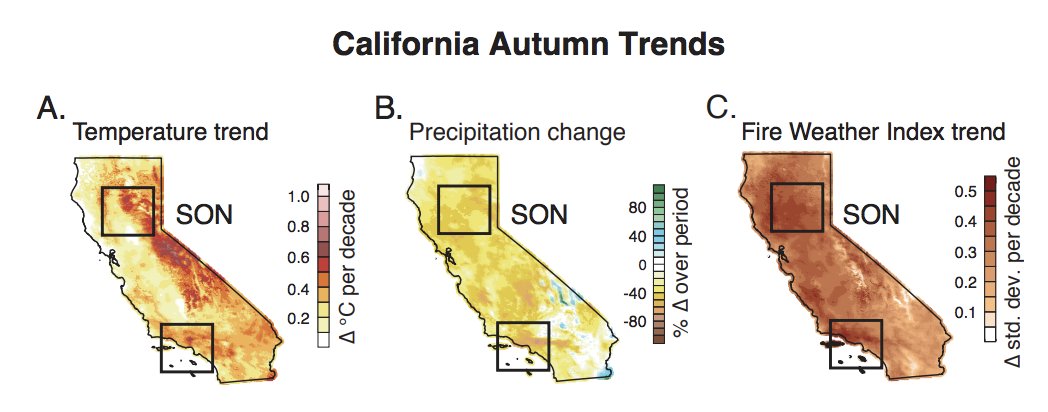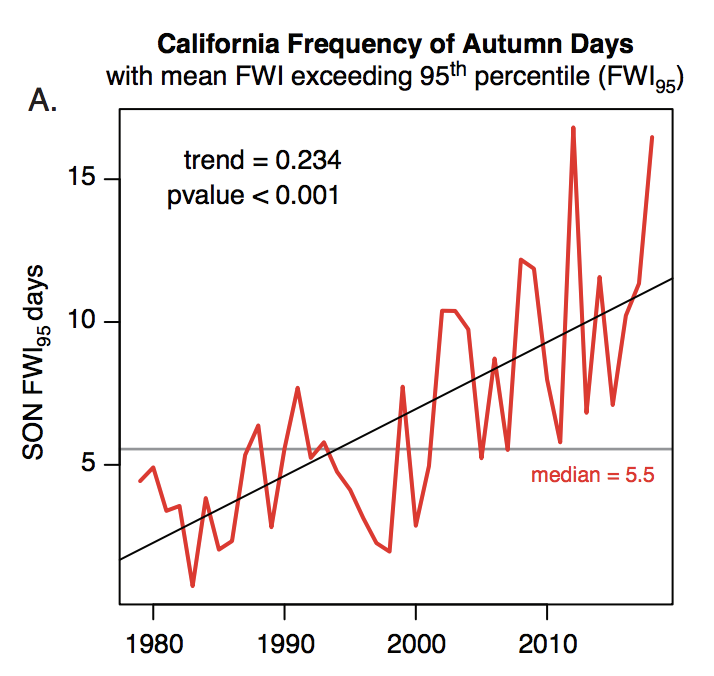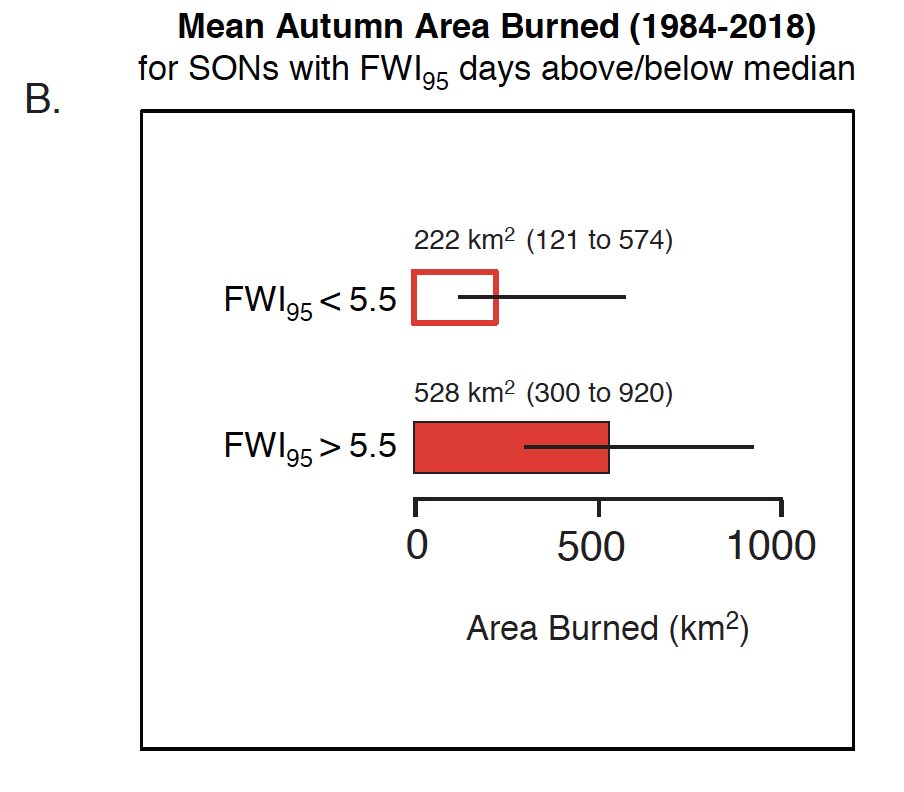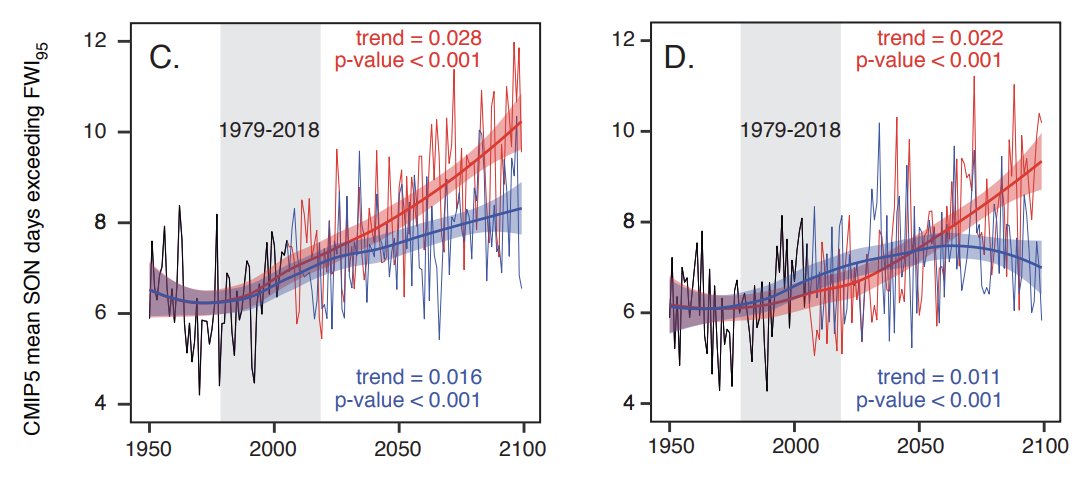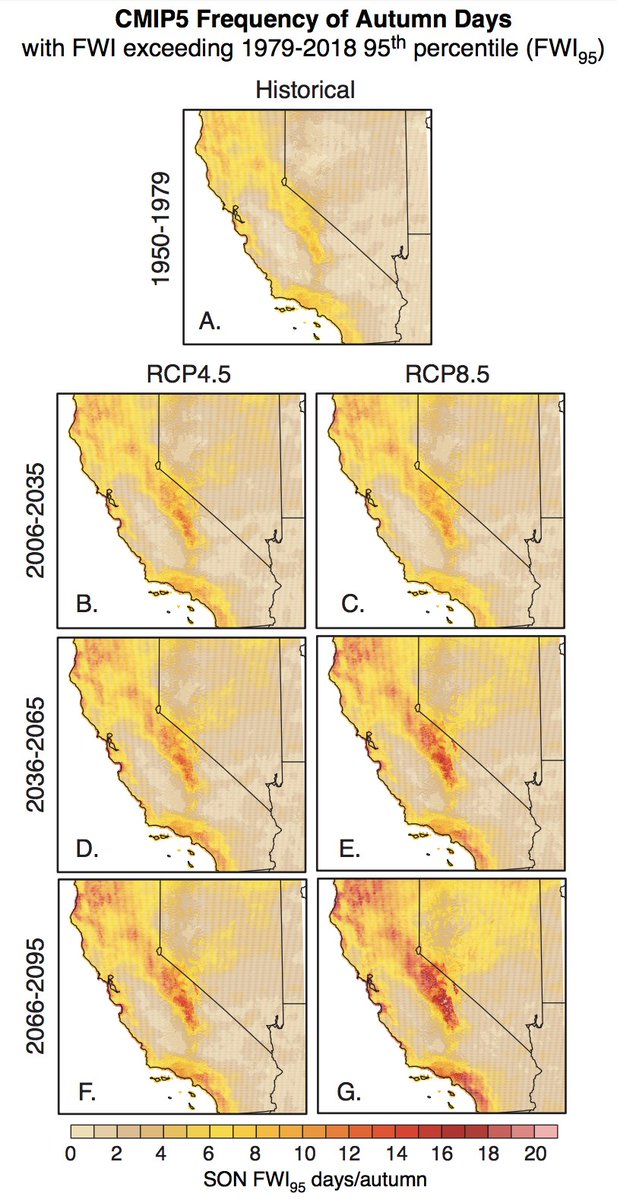Our new work on #ClimateChange & autumn wildfire risk in California, led by Michael Goss, is out today in (open-access) ERL. We find that climate change has already doubled the frequency of extreme fire weather days since 1980s.(1/6) #CAwx #CAfire #CAwater https://iopscience.iop.org/article/10.1088/1748-9326/ab83a7">https://iopscience.iop.org/article/1...
Historical increases in autumn temperature & decreases in precipitation have led to increased number of days where aggregate Fire Weather Index (FWI) exceeds historical 95th percentile, which are strongly associated w/large wildfires.(2/6) #CAfire #CAwx https://iopscience.iop.org/article/10.1088/1748-9326/ab83a7">https://iopscience.iop.org/article/1...
This historically observed increase in autumn wildfire risk in California is generally consistent with climate model projections for the same period. #CAwx #CAfire (3/6) https://iopscience.iop.org/article/10.1088/1748-9326/ab83a7">https://iopscience.iop.org/article/1...
Looking forward, frequency of extreme autumn fire weather days will further increase as climate continues to warm. But *degree* to which this risk increases depends greatly on greenhouse gas emission path we take. (4/6) #CAwx #CAfire #CAwater https://iopscience.iop.org/article/10.1088/1748-9326/ab83a7">https://iopscience.iop.org/article/1...
We are hopeful that this work, and studies like it, can be used to help inform mitigation of California& #39;s escalating wildfire situation. Although #ClimateChange is only part of the story, it& #39;s an important piece of the puzzle. https://twitter.com/Weather_West/status/1061327675514449920?s=20">https://twitter.com/Weather_W... #CAwx #CAfire 5/6
It has become increasingly clear that short-term, reactive thinking isn& #39;t going to cut it. So we& #39;ll need to approach the complex problem of fire in wildland-urban interface differently, and creatively, in a warming 21st century. https://twitter.com/Weather_West/status/1061334942427172864?s=20">https://twitter.com/Weather_W... #CAfire #CAwx 6/6

 Read on Twitter
Read on Twitter